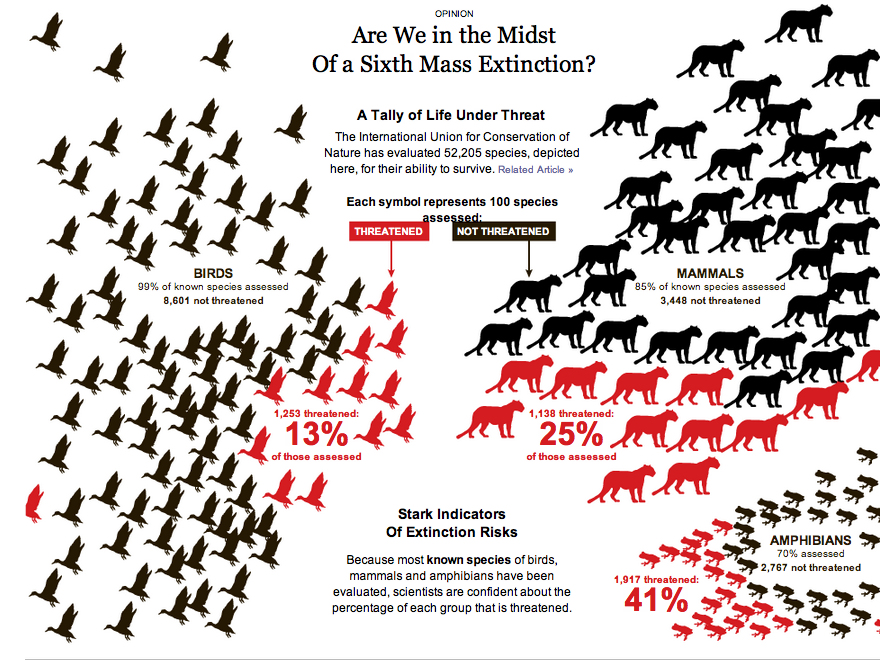A global concern that should take high priority: the survival of our fellow species
November 10, 2016
Evidence warns of the next mass extinction.
The “Living Report 2016” was recently released stating that an index recording numbers in about 3,700 vertebrate species populations, has indicated that “abundance declined by 58 per cent between 1970 and 2012.” Without changing human impacts on the environment, it predicts that numbers in population will fall 67% compared to levels in 1970.
Mike Barrett, director of science and policy at WWF-UK, told The New York Times, “We ignore the decline of other species at our peril – for they are the barometer that reveals our impact on the world that sustains us.”
Published by the World Wildlife Fund and the Zoological Society of London, the report urges a change in framework for how societies and cultures engage sustainability and environmentalism. The way people have affected ecologies, habitats, and natural resources is due to “unsustainable consumption patterns, destructive production patterns, malfunctioning governance structures and short-term focused economic planning”.
Agricultural practices are inefficient and damaging to ecologies, while hunting and illegal wildlife trade are also highly damaging to endangered species. The root causes of societal and cultural problems are complexly intertwined with the effect on the planet, so reversing the negative impact on the Earth should be a strong factor in future legislature on a majority of issues.
WWF conservation scientist Martin Taylor told CNN, “There’s a lot people can do even if they’re not wealthy or living in wealthy countries, such as using renewable energy, looking for certified sustainable products and most particularly talking to your members of parliament … saying you want strong environmental laws.”
According to the Center for Biological Diversity website, 90% of primates live in areas affected by deforestation. It also reports that the International Union for Conservation of Nature says 50% of primate species are on a path to being extinct and of 12,914 species of plants researched, 68% are endangered. Plants are more susceptible to extinction, for the fact that they don’t easily change habitats. As the conductors of photosynthesis, that provides the oxygen all species, including humans, need to survive, this is a major concern.
In a report published by Conservation Biology, “Estimating the normal background rate of species extinction”, the extinction rate is, currently, at least 1,000 times higher than it would be if humans were not around. It is on a trajectory to being the largest and fastest amount of population loss since the mass extinction of dinosaurs.
The “Living Report” suggests this is likely to be correlated to the cause of what some scientists deem as the new geological epoch (period of time), Anthropocene, starting in the 1900s. Geological time is categorized by the changes of rock strata in the Earth. Previously, rock characteristics have changed because of natural events like meteors, volcanic activity and changes in the atmosphere. When observed in the future, changes in sedimentation would be due to factors such as, urbanization, plastic particles in ocean layers, and a rise in pesticides and other chemicals. For the first time, the new environmental phase that will be reflected in Earth’s history is caused by a particular species: humans.



